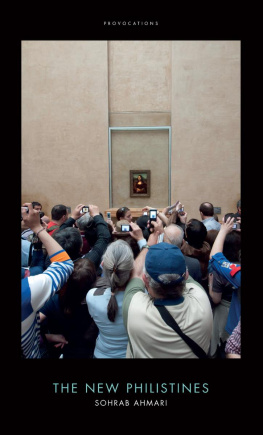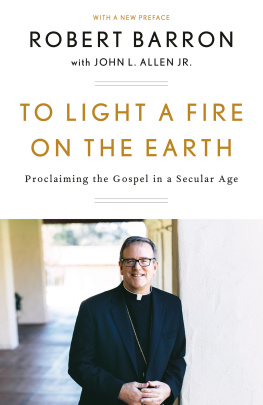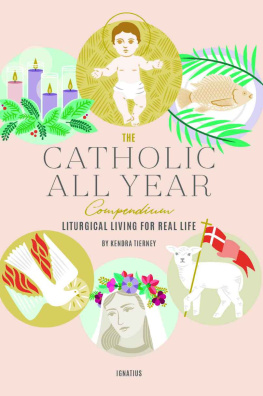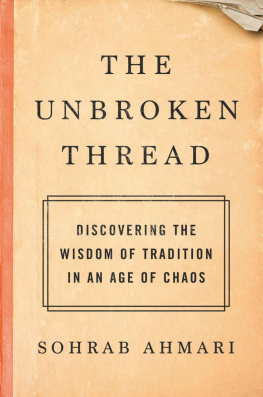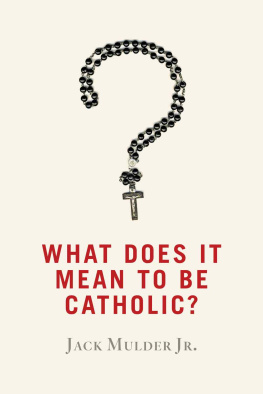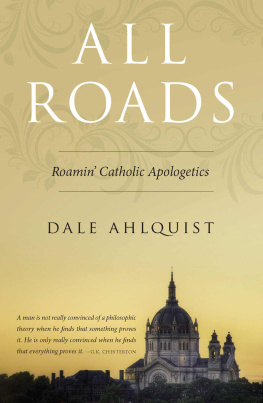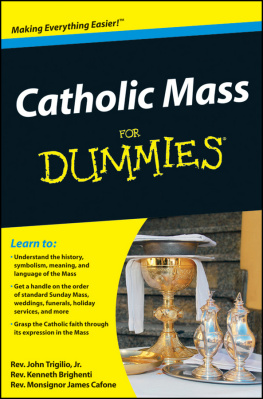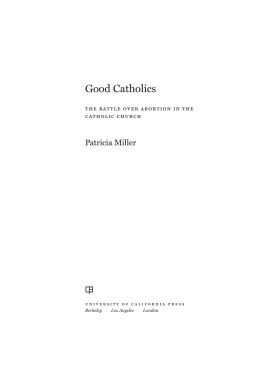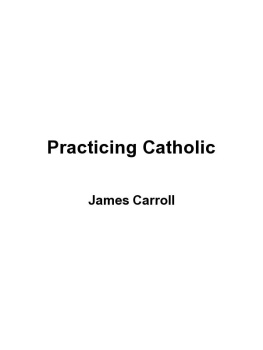FROM FIRE, BY WATER
SOHRAB AHMARI
From Fire, by Water
My Journey to the Catholic Faith
IGNATIUS PRESS SAN FRANCISCO
Unless otherwise indicated, Scripture quotations are from Revised Standard Version of the BibleSecond Catholic Edition (Ignatius Edition) Copyright 2006 National Council of the Churches of Christ in the United States of America. Used by permission. All rights reserved worldwide.
Cover design by John Herreid
2019 by Isgnatius Press, San Francisco
All rights reserved
ISBN 978-1-62164-202-2 (HB)
ISBN 978-1-64229-064-6 (EB)
Library of Congress Control Number 2018949823
Printed in the United States of America
To Father R.C.J., who made Christ visible.
And to my Maximilian .
He brings down to Sheol and raises up.
1 Samuel 2:6
CONTENTS
FOREWORD
You hold in your hands the best personal memoir I have read in many years: honest, vividly written, and compelling. Sohrab Ahmari is emerging as one of the finest minds and writers of his generation, and the story of his conversion recounted here will stay with the reader for a very long time.
This, of course, is a big claim. It requires some explanation, because today religion can often resemble nostalgia or sentimentalism, and the last thing Christians need is another bath in either. Stories of personal conversion are commonplace in an American culture with a taste for self-revelation, and too often the stories fail for one of two reasons: vanity lurking beneath an authors false humility, and an unseemly appetite for melodrama. The truth is, were never as important as we think we are, and, in the end, we and our stories will be forgotten by everyone but God.
And yet, God made us social creatures for a reason. In needing each other, in depending on each other, we have a chance to learn how to love as God loves, and thereby to strengthen each other with reasons for hope. Thus we long for stories like Ahmarisstories that ring unmistakably true and can pierce through the skepticism and disappointment that dominate our daily headlines.
One of the ironies of life is that, eventually, if we have been paying attention, we know and come to understand a great many things. This makes sense because we experience a great many things over the years and develop our skills accordingly.
But the same experiences and skills that provide us with a little wisdom and mature judgment also tend to narrow our ability to recognize new possibilities and solutions. We can become quite good at naming an illness, and explaining its nature and cause, and knowing what doesnt work, but we are not so good at imagining or bringing about a cure or a way forward. A talent at diagnosing the world still has value, because people need to wake up to the reality of a problem before they can begin to fix it. But the fixing often belongs to a different (and younger) set of eyes and skills. This is what makes authors like Sohrab Ahmari so important and also so exhilarating. They remind us that God is always young, and so are those who truly love him.
He makes all things new .
We live at a moment when science and technology can make the claims of faith seem implausiblenot by attacking and disproving God but by rendering people indifferent to him, and making the vocabulary of faith incomprehensible. Yet people still suffer and die, all of us. So do the persons we care for, which means that all of us ask the question: Why ? We long for an answer. We have a deep need for meaning. People also still love, which means that we have a need for intimacy, completion in the heart of another, and the fertility of new life. And people still have an instinct and a yearning for beauty, which means that beauty has the power to evade the blind machinery of logic and reach right into the human soul.
The Church, as Ahmari discovers in these pages, is mother and teacher, nourisher and consoler, in all of these things, and all of these things prevent human affairs, no matter how confused, from becoming permanently inhuman . Saint Augustine, whose own conversion took place at an age and in a climate not so different from Ahmaris, would remind us that history is the great destroyer of
human illusions and vanities. But it is also the great well-spring of personal and ecclesial hope. While we mustnt be captured by the world, we very much need to love all the great good in it, serving the people who inhabit it and inviting them to the knowledge and love of Jesus Christ. We should never underestimate the power of personal witness, because without a living example of love that people can see and follow, truth is mute and sterile.
What we do as individual believers thus resonates beyond our own lives because our personal witness shapes others, and each of us as a child of God is meant to experience joy forever . Likewise what we do as communities of Christian friendship matters just as powerfully, because the Church, as a family of families, shapes cultures, creates the future, and sustains Gods presence in the world.
Leon Bloy, the great French Catholic convert, liked to say that, in the end, the only thing that matters is to be a saint. If we are willing to listen, the Church has many good reasons why people should believe in God, and in Jesus Christ, and in the beauty and urgency of her own mission. But she has only one irrefutable argument for the truth of what she teaches: the personal example of her saints. This is the vocation she intends for all of us.
I found myself highlighting passages in this book that I will return to many times in the months and years ahead, but among the best of them appears on the first page of the very first chapter:
My native land [Iran] smelled of dust mingled with stale rosewater. There was enjoyment in Iran and grandeur of a kind, to be sure. But when it wasnt burning with ideological rage, it mainly offered mournful nostalgia. Those were its default modes, rage and nostalgia. I desired something more.
The lesson here is simple. We are each created for something more, and our hearts are restless until we find it. It is our great good fortune that Sohrab Ahmari did.
+ Charles J. Chaput, O.F.M. Cap.
Archbishop of Philadelphia
PREFACE
It was a classic Onion headline: Reason Man Turning to Religion Later in Life Must Be Horrifying.
The satirical news item concerned Paul DAmato, a small-town Pennsylvania man who had suddenly taken up a life of Christian piety in late middle age. Formerly non-religious, he now attended multiple services weekly, wore a cross, and regularly brought up Christs redeeming light in everyday conversation. The accompanying stock photograph showed a man in a plaid shirt kneeling in the pews of an empty church, his eyes shut, hands clasped in prayer.
Boy, youve got to think it was something pretty terrible that made him religious at this point, coworker Jessica Redmond told the Onion s reporter. She went on: The guys nearly 50, and now he finds God right out of the blue? I bet its something with drugs. Or maybe he killed someone in a car accident. Either way, something super messed up happened to him. Only something really, really bad could have brought about a conversion like this.
Like all good satire, the Onion article reflected the spirit of the age in exaggerated form. In our age, a conversion like DAmatos appears, by turns, alarming and ridiculous. Cosmologists today can pinpoint the age of the universe down to the smallest unit of time, neurologists trace every desire to the firing of synapses in the brain, cars drive themselves, and the Internet offers total, instantaneous knowledge about nearly everything. Perhaps there is a Great Mathematician out there, our contemporaries allow, and perhaps this deity looks upon the cosmos with a generally benign countenance. But a personal God, who takes an interest in the destiny of Paul DAmato of Stroudsburg, Pennsylvaniayou cant be serious.
Next page

